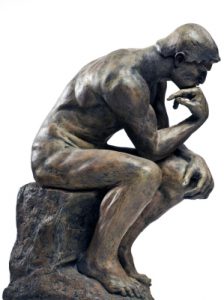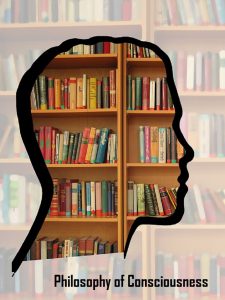Recently, the most frequently asked questions that follow after some of my publications are:
- Who is “our” God or who are “our” Gods?
- Where do “our” Gods live?
- Are people able to communicate with Gods?
- Can someone become a God?
- Can Gods fall short of being Gods?
- etc.
I try to answer all these questions (to prove my point of view) in the short article of my blog. And you, my readers, are free to judge how successfully I managed to do it.

Our times. The representatives of “the modern” humankind (engineers, industrial workers, designers) create various “smart” computers that are constantly improving. Exactly these people can be called Creators (Authors) with a big letter because they embody their thoughts and ideas into available material substances.
Nowadays, they create different “technologically advanced” devices from available material substances. These devices, as a rule, represent hardware and software complexes.
The modern Creators (Authors) have already proceeded to a real creation of devices with — as alleged by them — artificial intelligence. Robotic works create the hardware of most devices on their own accord.
Moreover, AI (artificial intelligence) participates in their development, production, testing, etc.
It worth mentioning that the development of such devices wends the way of creating “eternal” devices, i.e. devices, the life cycles of which will exceed the maximum period of life cycles of “the dense” human beings` bodies. It will allow to use them during all life cycle of this body — from the very beginning to the end. The example is a mechanical clock ATMOS, Jaeger-LeCoultre with ability to constantly work for nearly 600 years.
Along with the use of artificial intelligence when creating the hardware for various devices, people will develop different software components with the elements of artificial intelligence that will lead to:
- creation of a unified computer system for the Earth (protected Internet of the future);
- creation of a unified self-developing and self-organizing operating system for all types of devices.
- creation of the self-developing and self-organizing applications for devices people use in their activities;
- creation of a unified storage for consciousness of all “modern” humankind (cloud storage of the future) in a real-time mode;
- at the first stage, only created by people text documents will be stored in the cloud;
- at the second stage, transient data about the operating systems of people devices will be stored in the cloud;
- at the third stage, transient data about all applications (software units) used by people will be stored in the cloud;
- at the fourth stage, transient data about the hardware of devices people use will be stored in the cloud;
- at the fifth stage, the detailed data about “the dense” material bodies of people who use these devices in their activities will be stored in the cloud:
- dactylograms;
- eye prints;
- face scanning;
- health condition in detail (pulse, blood pressure, blood picture, DNA structure, etc.)
- etc.
If one uses the data systematized by search giants like Google, the consequences will be the following:
- many apps will be smarter than any human being, since devices will exceed the speed of information processing by a human brain;
- many apps will be smarter than any human being, since the device will use all consciousness of “the modern” humankind, which was staged by the search systems and not by a certain life experience of a separate individual or group of individuals;
- many apps may become conscious, i.e. they will begin to systematize information about the outside World and in a such way, they will create their own consciousness;
- all apps used by people will pass the Turing test. As a result, no one will be able to identify whether he communicate with a computerized device or with a typical human being;
- many apps will become indistinguishable from people in their virtual space. People will receive juridical, medical, and many other online consultations not only in the form of a voice, but also in the form of documents these voices have prepared themselves.
At this stage, there are still reasons to state that human beings will continue to be the Creators (Authors) of all these objects. People will be peculiar Gods for these devices … since they will possess such attributes (characteristics) as CREATOR and ALL-MIGHTY does, because these people will still be able to create, destroy, modify and restore ANY “parts” of these devices at this stage, both hardware and software ones.

